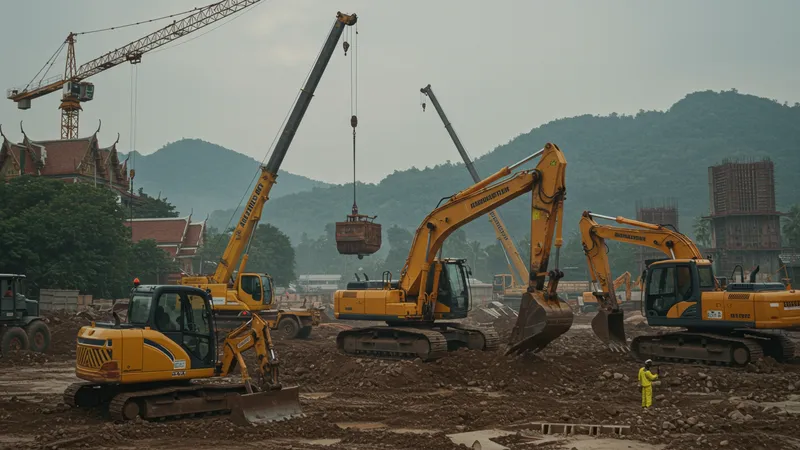
How To Choose The Right Construction Machinery In Thailand
For construction projects in Thailand, selecting machinery is more than just choosing the biggest crane or the fastest excavator. The process involves balancing efficiency, cost, equipment suitability, and reliability—all of which must conform to Thailand’s unique infrastructure needs and climate. Whether gearing up for large-scale commercial work or residential site development, the choice of equipment can significantly affect timelines and project outcomes.
Locating the ideal machinery for construction in Thailand involves understanding local regulations, recognizing climate demands, and seeking equipment that aligns with technical requirements. Equipment performance and after-sales service are crucial, as delays due to maintenance or mismatched machinery can result in project setbacks. Choosing well means analyzing brands, considering dealer support in Thailand, and balancing upfront costs against long-term reliability.

- Komatsu PC200 Hydraulic Excavator (฿3,900,000+)
- Caterpillar 320 GC Excavator (฿4,800,000+)
- Hitachi ZX200-5G Crawler Excavator (฿4,300,000+)
All three of these leading machines are designed for the heavy-duty needs of Thailand’s most active sites. The Komatsu PC200 is prized for its fuel efficiency and easy maintenance, making it popular for construction in both dense urban and rural areas. Caterpillar’s 320 GC is known for durability and comfort, especially in Thailand’s hot and humid climate, which can strain older models. Hitachi’s ZX200-5G adds advanced hydraulic technology that improves productivity on sites with variable terrain.
An understanding of local availability is central to the decision-making process. Unlike foreign markets, Thai construction managers must also factor in the proximity of spare parts providers, response times for service, and the prevalence of experienced operators for specific brands. For example, dealers in Thailand often bundle essential support services with machinery purchases, a practical advantage.
Costs extend beyond the sticker price. In Thailand, import duties, after-sales packages, and regional transport fees can form a significant portion of the real investment. It’s common for buyers to compare financing and leasing offers that are tailored to the local marketplace, which influences the decision as much as machine specs do.
Finally, climate and seasonal weather matter. Machines routinely exposed to Thailand’s heavy rains and high humidity require specific features, such as water-resistant electronics and reinforced cooling systems, to ensure longevity. These environmental considerations often determine which model stands the repeated test of Bangkok traffic or remote rural site access.
These initial factors are just the start. The deeper details reveal even more valuable insights ahead on how successful Thai builders select the perfect machinery for every job, from skyscrapers to infrastructure upgrades.